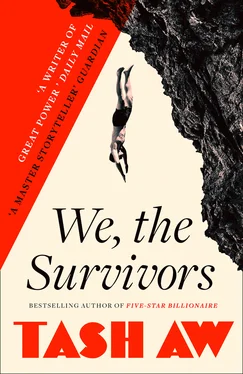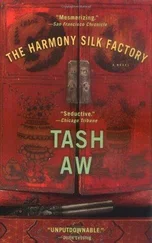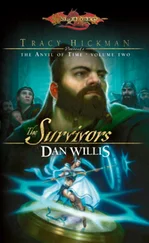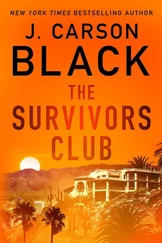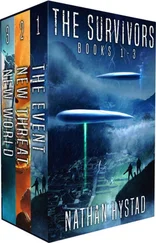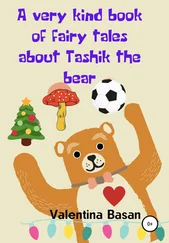When I finished he reached into his pocket and I thought he was going to give me a tip, maybe two–three ringgit, something like that, but instead he gave me his business card. ‘Ever need a job, just ring me,’ he said. He was called Mr Lai, and he owned a few vegetable farms near Sekinchan, some orchards, a goat farm. Plus, he was the middleman, the one who employed the groups of migrant workers to harvest the rice for the Malays who owned the biggest ricefields in the area. He arranged everything for them, got the groups of Bangladeshis and Indonesians in for the season, paid them their wages in cash, then sold the rice for the land-owners. Of course he took a cut from everything – not much, a bit here, a bit there, enough to end up a wealthy man. People make job offers all the time, but when you call them, the work isn’t there any more. I’d got used to that way of living. A promise isn’t a promise. Still, I kept the card.
A few months later, when I had a problem with my employers – they accused me of stealing, which wasn’t true, not at that job, anyway – I just turned around and walked out. The boss-lady was sitting at the desk, the cash register open, scolding me, her voice as harsh as a drill into concrete. Y ou want the money for what, buy drugs is it? Owe money to a loan shark? What? Her husband stood behind her, his arms folded across the top of his paunch. Above them the clock showed nine o’clock. I could feel the sentences forming in my head, explaining that it was a mistake, that if they looked at the books again, the numbers would add up, that I wasn’t the only one in charge of receiving the money. Or maybe I’d made a mistake, hadn’t counted the notes properly when a big payment came in – who knows? But she was shouting too loudly, one question layered on top of another, and I couldn’t keep up, the sentences in my brain never stitched together to form a clear line of defence. I wanted to scream all kinds of swear words, smash the glass cabinet in front of me with my bare fists, kick down the shelves of paint and screws and weighing scales, see all that cheap shit fall to the ground. But instead I grinned. I didn’t even know I was pulling a silly cheerful face until the boss-lady said, ‘ Smile what? Crazy boy. Where you going? Come back! Why you smiling?’
‘Hei.’ I shook my head. Pok kai. I turned and walked out of the shop. I’d never liked her. She was always prying, always asking me questions about my family, where I came from – things I didn’t want to talk about. Sei pat por . In my memory I actually called her these things to her face, told her exactly what I thought of her, but maybe I didn’t. The way I’m talking now, you won’t believe me, but I’ve never been one for saying much, especially in situations like that. She was still shouting as I left and walked out. I crossed the street and had some bak kut teh at Seng Huat, just under the iron bridge by the river. Even in the shade of the huge rusty columns and the trees that stood next to them I could feel the heat of the morning sun gathering in strength, making my shirt stick to my back. All around me, office workers and old retired couples were having a quick snack before heading off to more important matters – they ate quickly, slurping their soup, not looking up at the people around them. I shared a table with a young family, a mother and two children, a boy playing his Nintendo and a small girl who looked at me and smiled as her mother read a novel. I smiled back and made a face, a big happy clown face with bulging eyes and a wide smile. Her laugh was so clear, so weightless and free, and in those few seconds I believed that I could live life exactly as I wanted, that no harm would ever come to me, not on that morning or ever after. Her mother looked up and scowled at me. She put her arm around her daughter and said, ‘Don’t stare at the man. Finish your food, we have to go see ah-ma and ah-gong .’
When they were gone, I thought, Here I am again, no job, kaput , habis , finished. It wasn’t the first time, and it wouldn’t be the last. I knew I’d find another job soon enough. If you’re willing to do anything, you’ll get something. But there’s always that moment when you feel stuck, one door closes and all the others disappear. You can’t even see them, never mind think about how to open them.
I hadn’t forgotten Mr Lai’s card. It was still in my pocket, floppy and dog-eared from the sweat that seeped through my clothes. I found a phone booth and rang him. On the plastic dome over the telephone someone had scratched some graffiti, like some rare and delicate artwork carved in glass – the prime minister’s name, followed by the word ‘PANTAT’. The words had been written on the outside, and it took me some time to make out the letters in reverse. I started to laugh. Who takes the time to stand outside a phone booth and call the prime minister a cunt? That was exactly when Mr Lai answered. I tried to explain who I was, and why I was calling, but it was difficult because I was still chuckling. ‘You’re in a good mood,’ he said. ‘I like cheerful people.’ A week later I was working at his fish farm near Tanjung Karang.
At first I worked as a farm hand – a labourer – repairing, lifting, transporting. There were only two cages to start with, but more were already being built, and I was soon joined by two Indonesians, Halim and Adi, then Rio, Indra, Yudianto, Satria, Bayu, Adit, Rendy, Adra, Eka. [ Pauses. ] Rama, Hanif, Abdi, Firman, Leo, Dimas, Denny, Fariz, Endang – they came later. After all this time I can remember all their names. Very few of them stayed for long. Six months, one year – that wasn’t uncommon; a year was good, two years was unusual. Even after all the agencies started making big bucks by bringing in workers and tying them to three-year contracts, and deducting a whole year’s salary from their pay packages before they even started their jobs, they’d still go missing. When you saw how hard they worked, you’d understand why. It wasn’t that their spirits could not accept the wages – four, five hundred bucks a month – it was that their bodies could not tolerate the work.
Not long ago I read something on Facebook that talked about minimum wages for migrant workers. I don’t know how it came up on my Facebook – usually it’s a lot of links to Joel Osteen videos or other devotional stuff, or badminton or soccer – but this time it was an article about how some people in KL, a human rights group or something, were trying to establish basic rights for the millions of foreigners working here. Of course they were going to fail! Even I could have told them that. They kept complaining about the lack of political will – government this, government that. What struck me and made me shake my head was all the nonsense they said about money. Migrant wages are degrading, they humiliate the soul . They didn’t understand that it wasn’t the pay that destroyed the spirits of these men and women, it was the work – the way it broke their bodies before they could even contemplate the question of salaries. The way it turned them from children to withered old creatures in the space of a few years. Anyone can work with their body like that for a year, two years, maybe even more. But when those years stretch out before you like the sea on a calm hot day, waveless, with no change or variety – when that kind of life becomes your only future, that’s when you flee. Even if someone pays you ten thousand a month, your body won’t accept it. Your mind tells you to stay, to earn money for your kids back home, your old parents who need help. But your body says: Run .
The first few months, I worked with the foreigners, sometimes even getting into the water to fix the cages with them, or carrying ten tons of sand from one end of the land to the other in wheelbarrows when we were constructing the office and other farm buildings. We wore loose-fitting shirts to protect us from the sun, but later, when the sun had gone down and we were bathing, I could see how our bodies were marked by the sun – the skin on our faces, necks and hands was three shades darker than the rest of ourselves, as if it belonged to someone else, a person less fortunate than us. I took to tying a small towel around my neck to keep the sun from burning me. I knotted it at the front, so that I could untie it easily to wipe the sweat from my face, and the men started to make fun of me. Hey Mr Cowboy , they joked. John Wayne just came to work!
Читать дальше
